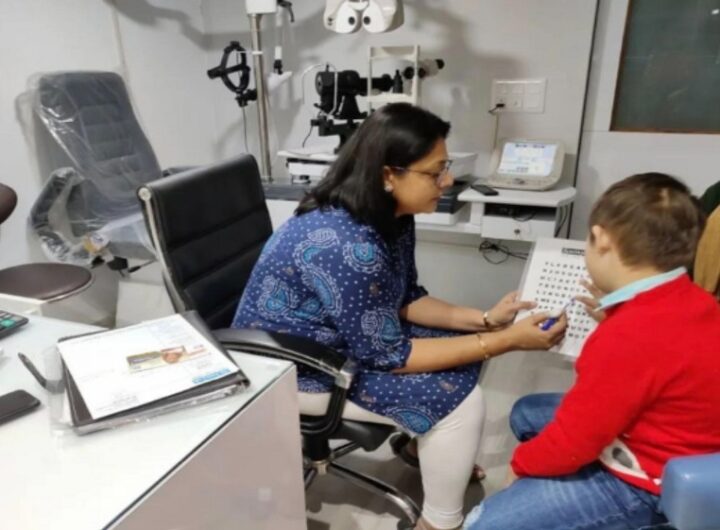
Chronic heart failure needs careful attention and management. Cardiologists play a key role in this process. They offer specialized care to prevent complications and improve quality of life. One common symptom, such as Port Saint Lucie leg swelling, can signal heart issues. Cardiologists help by diagnosing, treating, and monitoring these conditions. Understanding their role can lead to better outcomes for those with chronic heart failure.
Diagnosis and Initial Assessment
Cardiologists begin with a thorough assessment. They use tests like echocardiograms and stress tests to get a clear picture of heart function. These tests help determine the severity of heart failure. By understanding the heart’s condition, cardiologists can tailor a treatment plan. This might involve lifestyle changes, medication, or more advanced treatments.
Treatment Options
Once the diagnosis is clear, treatment options are discussed. Cardiologists often recommend lifestyle changes first. These include a heart-healthy diet, regular exercise, and quitting smoking. Medications may also be necessary to manage symptoms and improve heart function. In some cases, more invasive procedures like surgery or the installation of a pacemaker are needed.
Monitoring and Follow-Up
Regular follow-up is crucial. Cardiologists schedule routine check-ups to monitor progress. They adjust treatments as needed to ensure the best outcomes. This ongoing care is vital for managing chronic heart failure effectively. By keeping a close watch, cardiologists can quickly address any changes or complications.
Comparison of Treatment Approaches
| Treatment | Benefits | Challenges |
| Lifestyle Changes | Improves overall health, no side effects | Requires commitment and support |
| Medications | Effective in reducing symptoms | Possible side effects, adherence needed |
| Surgery | Can provide long-term solutions | Invasive, requires recovery time |
The Role of Technology
Advancements in technology have greatly helped cardiologists. Tools such as remote monitoring devices allow for more detailed tracking of a patient’s condition. These devices send data directly to the cardiologist, ensuring timely interventions. This can mean fewer hospital visits and a more proactive approach to treatment.
Importance of Patient Education
Educating patients about their condition is another important role of cardiologists. Understanding heart failure can empower patients to take control of their health. Cardiologists provide guidance on recognizing symptoms and the steps to take when they occur. This partnership between doctor and patient improves adherence to treatment plans and overall outcomes.
Collaboration with Other Healthcare Providers
Cardiologists often work with a team of healthcare providers. This team can include dietitians, physical therapists, and primary care doctors. Working together, they create a comprehensive care plan. This collaborative approach ensures all aspects of a patient’s health are addressed.
Resources and Support
There are many resources available for those with chronic heart failure. The National Heart, Lung, and Blood Institute provides valuable information and support. Additionally, organizations like the American Heart Association offer educational materials and support groups.
Conclusion
Cardiologists are essential in managing chronic heart failure. Their expertise and guidance help patients navigate this complex condition. With the right care and support, individuals can lead healthier, more connected lives. Understanding the role of cardiologists is a step towards better heart health and improved quality of life.

 Tennessee Men’s Clinic Discusses the Correlation of Healthy Relationships to Men’s Health
Tennessee Men’s Clinic Discusses the Correlation of Healthy Relationships to Men’s Health  Frequently Asked Questions About Speech Therapy Answered
Frequently Asked Questions About Speech Therapy Answered  The importance of choosing a good gynaecologist doctor for your health
The importance of choosing a good gynaecologist doctor for your health  Ophthalmologists’ Strategies For Managing Chronic Eye Diseases
Ophthalmologists’ Strategies For Managing Chronic Eye Diseases  Breaking Down Barriers: An Infertility Specialist’s Approach To Inclusive Treatment
Breaking Down Barriers: An Infertility Specialist’s Approach To Inclusive Treatment  Understanding Foot Biomechanics: A Podiatrist’s Perspective
Understanding Foot Biomechanics: A Podiatrist’s Perspective  Complete Trekking Guide to Langtang and Annapurna
Complete Trekking Guide to Langtang and Annapurna  Trek Nepal’s Four Great Regions: Annapurna, Langtang, Manaslu, and Nar Phu:
Trek Nepal’s Four Great Regions: Annapurna, Langtang, Manaslu, and Nar Phu:  The Ecosystem of Ease: How Bill Payments Evolved into a Digital Habit
The Ecosystem of Ease: How Bill Payments Evolved into a Digital Habit  How Insurance Apps Are Embedding Themselves Into India’s Daily Payment Flows
How Insurance Apps Are Embedding Themselves Into India’s Daily Payment Flows